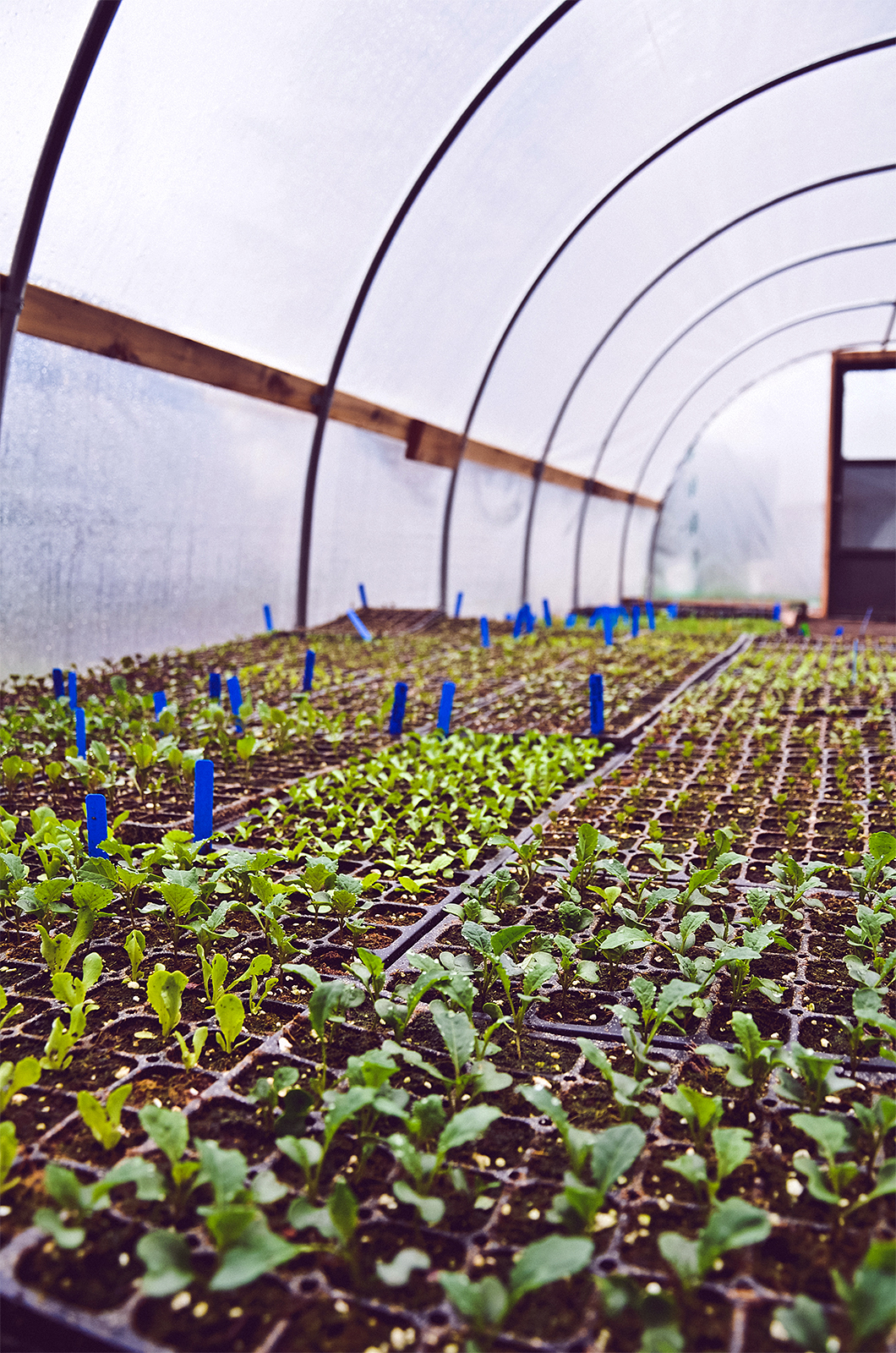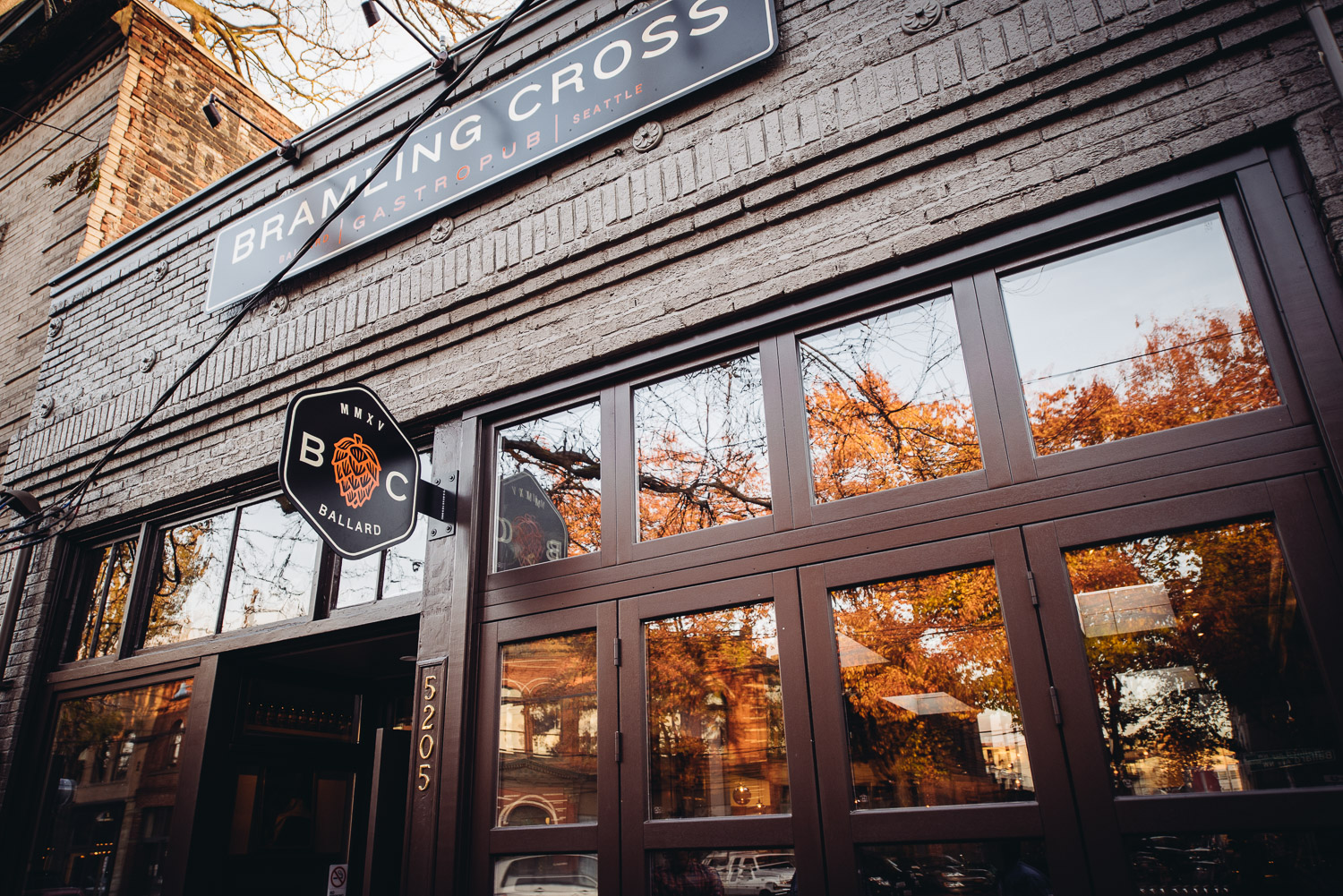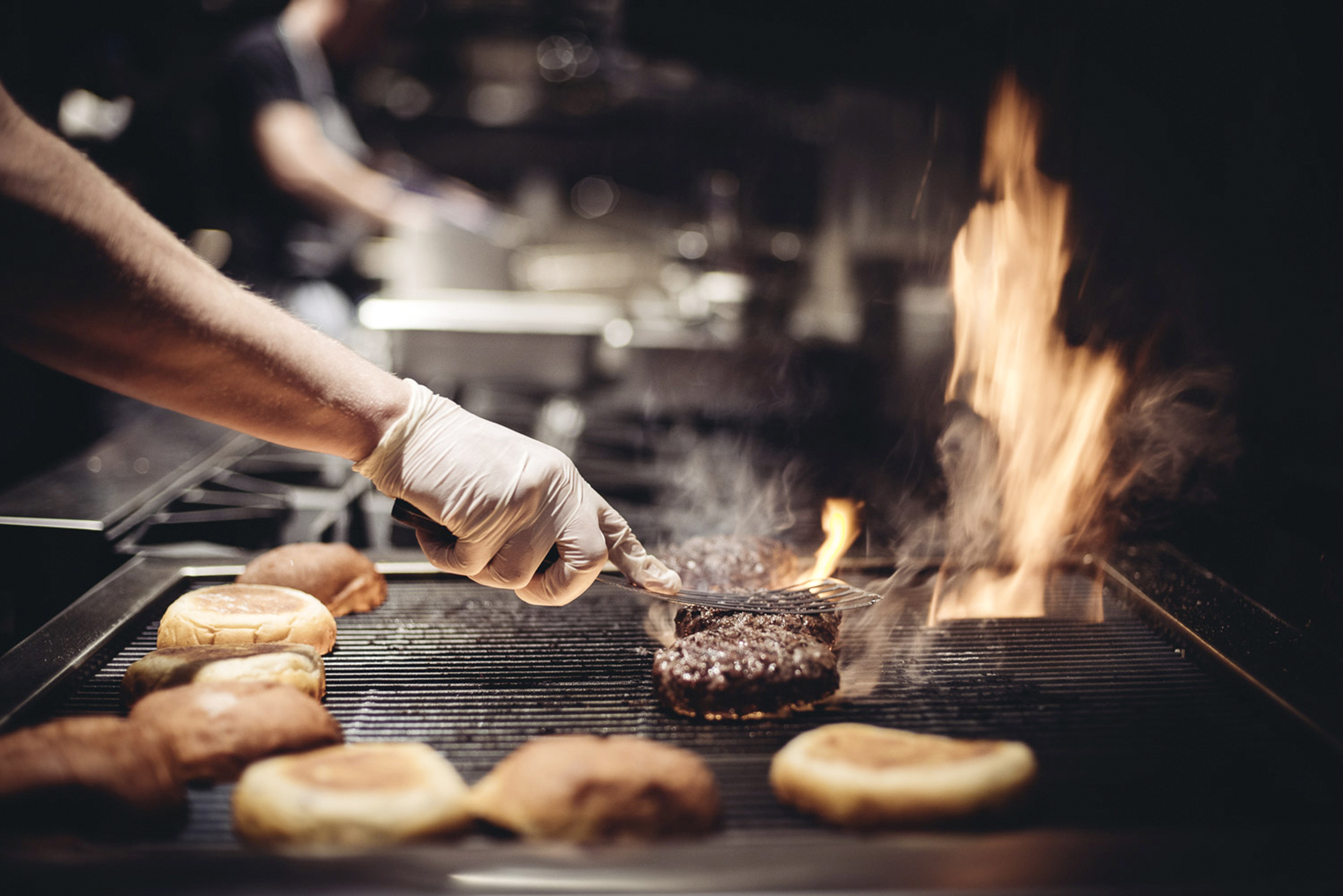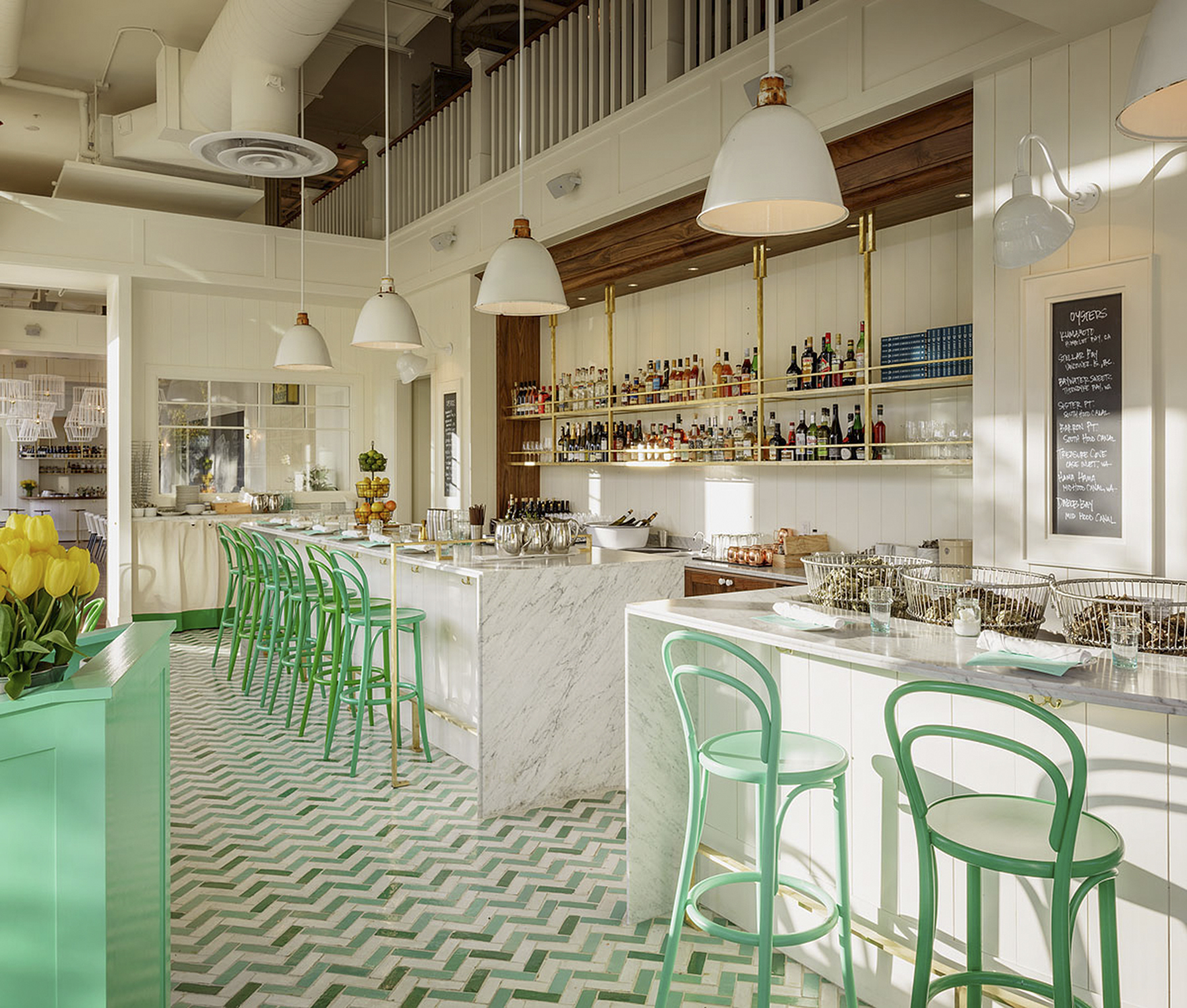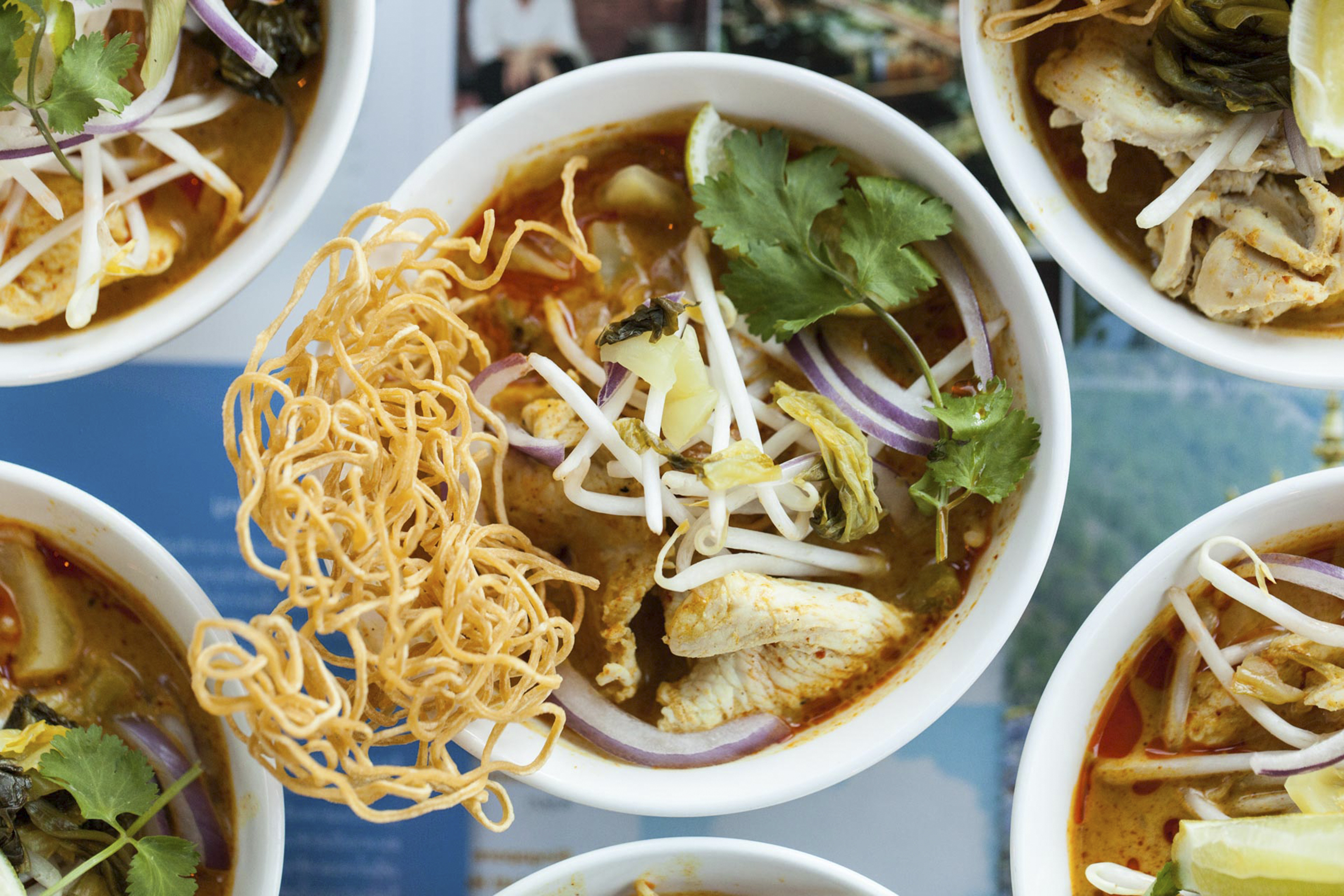Photo by Hilary Dahl
•—————————————————–•
Jason Stoneburner is a few minutes late for our phone call. When I finally get him, he is breathless and apologetic. He was on the roof of Bastille tending to his beehive during the recent July heat wave. I jokingly tell him I hope he didn’t get stung, to which he replies: “I just did, for the first time.” Oops.
If you’ve ever had the pleasure of touring Bastille’s rooftop garden, you know that Stoneburner, executive chef at that restaurant and owner/chef of Stoneburner, just across the street on Ballard Avenue, cares about his ingredients enough to grow many of them himself—honey included. While he’s had the guys at Ballard Bees tending his millions of bees for the past three years, he recently became interested in the process, getting tutored in beekeeping enough to take it over completely. He doesn’t wear a beekeeper’s suit, though, “just some gloves and a mesh mask. I can’t do that whole suit—it’s a little over-the-top. Like diving with a chain-mail suit,” he jokes.
It’s not the bees we’re here to talk about, it’s his latest garden—a rented acre in Redmond, which he farms with help from Seattle Urban Farm Company, where his neighbors are other restaurant’s farms, including The Herbfarm and Trellis, who’ve been there for a while and have many, many acres. Here the focus is on Mediterranean plantings that work in his Mediterranean-inspired Stoneburner restaurants. Besides his first bee sting, he also got his second garden haul today from the farm, including Italian varieties of escarole; a bright, light chard; a variegated zucchini; and an “opal” purple basil.
As interested as Stoneburner is in gardening, however, he still maintains that “I’m a chef, not a farmer. My focus is still on the kitchen. Any involvement is added work for me. But it helps me kind of have focus on what it is exactly I’m looking for so I know how it’s going to work on a plate. There’s some distance between what a farmer thinks is a perfect veggie versus what a chef thinks it is. It’s fun to look at things in the ground and envision it on the plate. I’m a very visual chef; I have to see these items before I plan a menu.”
It’s creative control over menu items that he’s ultimately after, because, as he readily admits, this isn’t a cost-cutting measure, nor is it a way to get access to quality: “We’re blessed agriculturally in this area.” And the bulk of the work is left to his farmers.
“One of the most exciting things about working with Colin and Brad (of Seattle Urban Famers) is that in sussing out a lot of the seed stock, I kind of learned what works in that area just from shopping the local markets and talking to other farmers. We looked at heirloom varietals that are fairly traceable to countries of origin, so we’re doing a lot of French varietals for Bastille and Italian for Stoneburner.”
What fruits of the labor can we expect to see at Stoneburner? “We’re going to be serving zucchini crudo, very dense and crunchy, sprinkling it with some nigella seeds and some honey vinegar [made from honey from their hives], a little olive oil, and some Chinese radishes.” He’s also rolling out fresh pasta that he’s seeding through with the opal basil, which he says creates beautiful streaking and flavor.
Also on the menu: “We’re planning on building a brick oven out there [in the garden] so that we can do some roasting and have some harvest parties, some dinners in the field.” If his Bastille garden tours and cocktails are any indication, we can expect them to be a hit.
nsprinkle@seattleweekly.com
Read all of our picks for Food & Drink, and explore the rest of this year’s edition of Best of Seattle.
